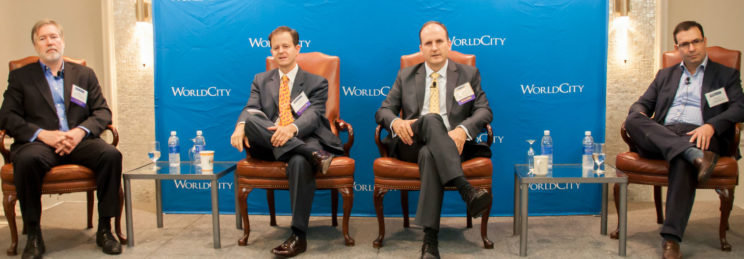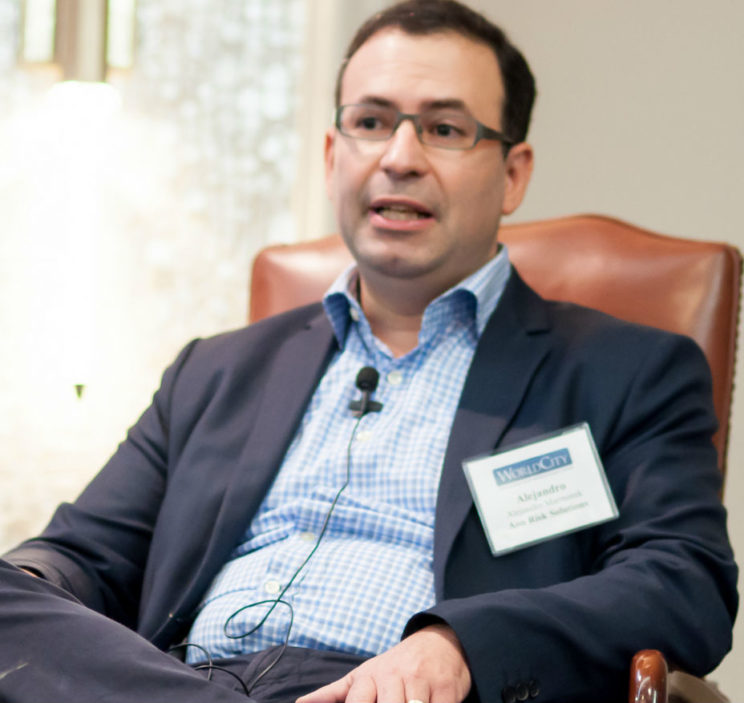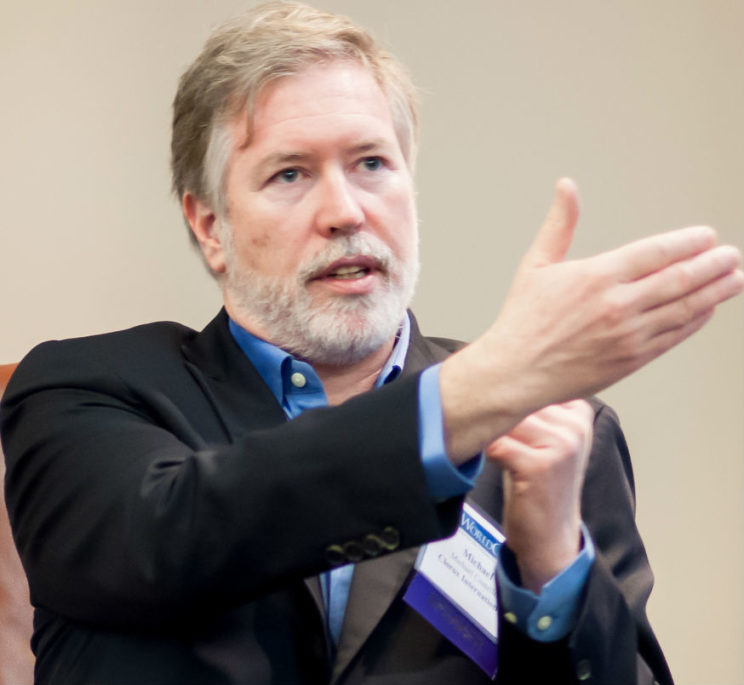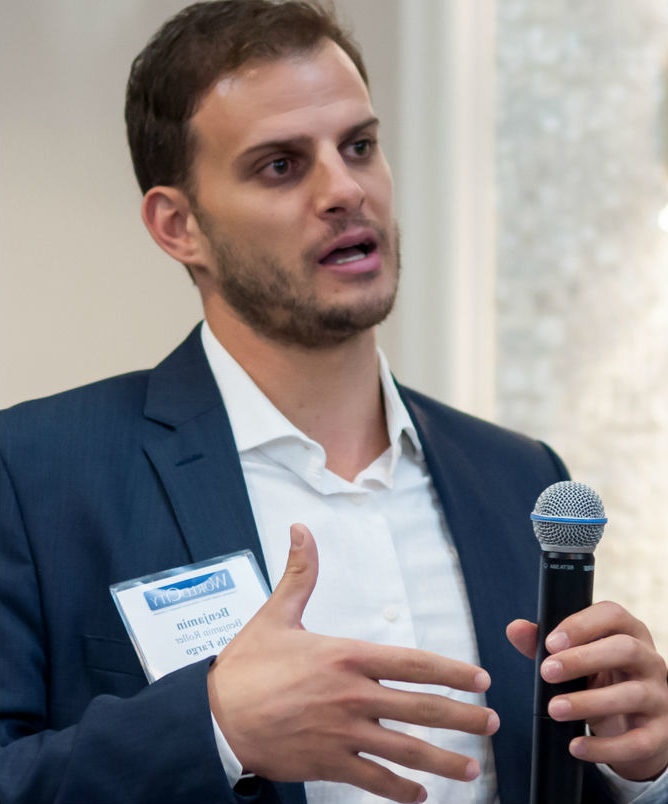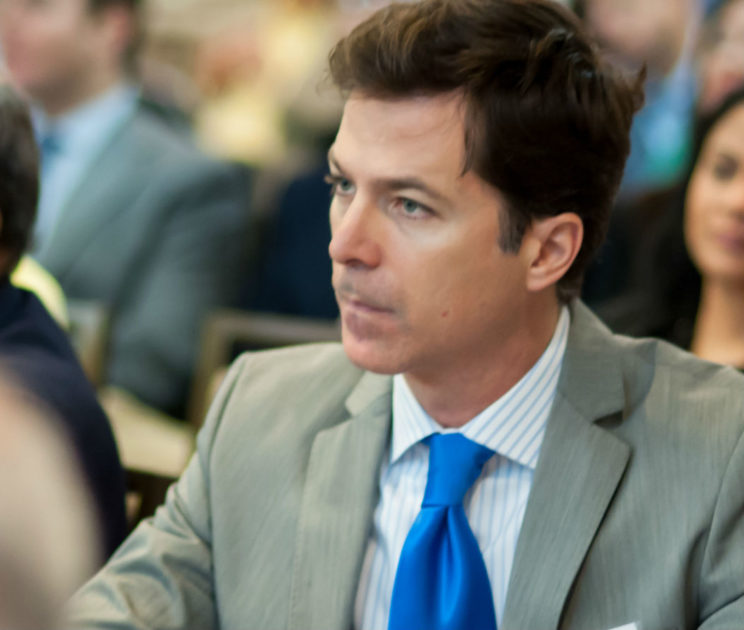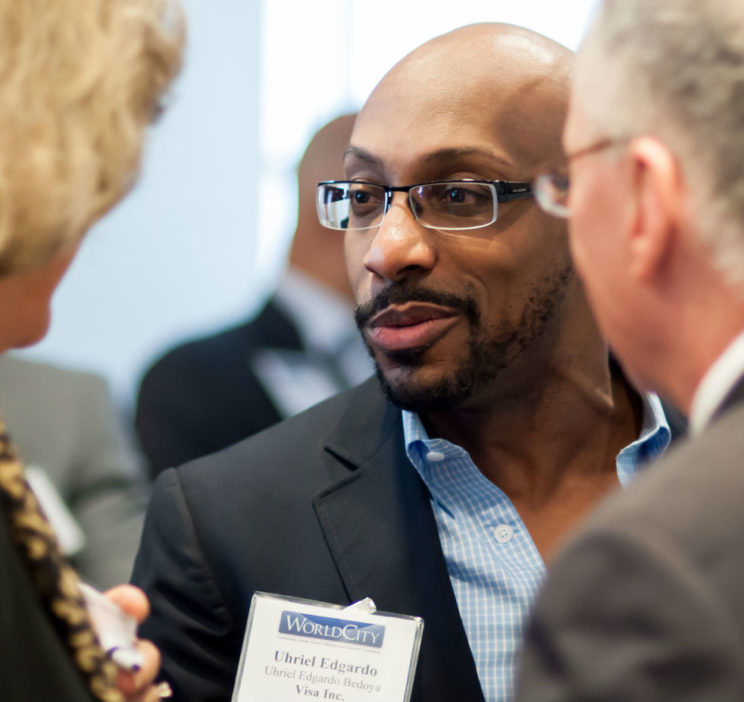Latin America in 2016: Pitfalls and Opportunities
The outlook for Brazil and some of Latin America’s major economies seems weak this year, hobbled by a slowdown in China and currencies that have lost value.
But a new government in Argentina and foresight in Colombia offer bright spots in the region too.
That was the analysis of four experts on Latin America who spoke at WorldCity’s Global Connections event held Jan. 29, 2016, at the Hyatt Regency Coral Gables.
“What is the biggest factor as you look out on the year?” WorldCity CEO Ken Roberts asked the panel.
“It’s the end of the commodity super-cycle,” said John Price, managing director of consulting firm Americas Market Intelligence. referring to the plunge from high prices for oil, metals and other basics. What’s more, currency depreciation leaves debt-burdened companies to face a day of reckoning. “That is a train wreck … just beginning.”
Those countries that prepared for a downturn – think Colombia, Peru and Mexico – should endure, he said. “I believe we will see a bifurcation of those who did their homework over the last eight years, and those who didn’t.”
Others, especially Brazil, have yet to react to “the new reality of (lower) commodity prices,” said Alejandro Marmorek, chief commercial officer at Aon Risk Solutions, Latin America Division. “They need to make adjustments.”
Some currencies in Latin America could shed more value this year, said Michael Costello, senior vice president for the
International Division of Clorox. Typically, one region outside the U.S. picks up the economic slack when another falters. “This is the first time in my experience that everything is going down at the same time,” said Costello.
For investors eyeing Latin America, due diligence remains a top concern, said Jim Faulkner, managing director with Kroll’s Investigations and Disputes Group and head of the firm’s Miami office. “Brazil is a beautiful, wonderful country,” he said, but it’s rife with corruption cases now. U.S. companies, which are subject to the Foreign Corrupt Practices Act, need to do careful investigations before investing in the region, said Faulkner.
Those views were little surprise to the overflow crowd of attendees, including many who do business with Latin America and the Caribbean. Earlier in January, the International Monetary Fund’s Alejandro Werner had forecast negative growth of 0.3 percent for the region this year – with Venezuela down sharply, Brazil off moderately and some countries growing. He noted that commodity prices had declined 30 percent to 50 percent from their peaks.
Audience members sought out specifics and what the trends might mean for South Florida.
“How do you divide the oil producers from the oil consumers – that is, what is translating into their GDP right now?,” asked Randy Friedlander of the Friedlander Group, Morgan Stanley Wealth Management.
Cheap oil is part of the story, said Price, but debt casts a shadow over some large national companies that borrowed big sums at rock-bottom interest rates in recent years. As governments depreciate currencies in their homelands, those companies now are scrambling to pay down their (now much more expensive) dollar-linked debt.
“You are not growing and investing,” Price said. “That is why in spite of all this money, they are not producing jobs.”
“How does a multinational operate in this environment?” Roberts asked Clorox’s Costello.
“All of our inputs are priced in dollars,” Costello said. Managers must tailor a country-by-country response, balancing the rise in local-currency prices with cuts in overhead to keep profitability and protect the brand.
For those with dollars, opportunities to buy in Latin America
Not all the news is bad, of course. For those flush with dollars, this is the time to buy Latin American companies, said Price. “It is a once-in-a-decade opportunity.”
“The reality is there are tremendous opportunities now, but tremendous risk,” added Faulkner, suggesting interested buyers pay the $30,000 to $50,000 it may cost for adequate due diligence. He told of one company that thought it had done background checks but later found on its payroll felons who’d served U.S. sentences and were deported.
U.S. companies can get in serious hot water if employees violate the Foreign Corrupt Practices Act overseas. “Find out if the company is paying government officials in any way,” Faulkner advised.
South Florida has been benefiting over the past few years from capital fleeing Venezuela and Brazil. What effect will Latin America’s decline have on the South Florida economy this year?” asked Ben Roller, a senior business relationship manager and assistant vice president at Wells Fargo bank.
“The middle-market buyer is going away,” said Marmorek of Aon, which specializes in risk management, insurance, human resources and other services. South Florida will continue to benefit from the strength of the U.S. economy.
“There are two worlds happening in Florida, and companies doing business in Latin America have to diversify” and take advantage of U.S. opportunities, said Marmorek.
Downturn poses challenges for South Florida exporters
Latin America’s downturn could hurt South Florida exporters in 2016, Costello said. “It is going to be the slowest emerging market growth in four or five years.”
Still, the Miami area might attract offices from some smaller companies that had set up Latin American hubs in Brazil or other regional nations during headier times, the panelists said.
What industries are ripe for recruitment to the Miami area?, asked Javier Betancourt, who directs economic development for the city of Coral Gables.
“Insurance companies,” replied Marmorek. He said several dozen that cater to Latin America have set up offices in South Florida, as demand for insurance services grows across the Latin region.
Also creating opportunity: Argentina’s new president Mauricio Macri, a successful businessman.
“Argentina is for us a shining star,” said Costello, “I think the optimism is deserved.”
“I’ve never been as excited about a new government as I am about Argentina,” said Price. Some residents who’d fled the country are moving back to join Macri. “I think he came into office with an entire playbook of what he is going to do.”
Global Connections is one of four event series organized by WorldCity to bring together executives in greater Miami on international business topics. The Global series is sponsored by Florida International University’s School of Business.
The next Global Connections is set for Feb. 26 and will feature the release of WorldCity’s 2016 “Who’s Here” directory of multinational companies in South Florida.
